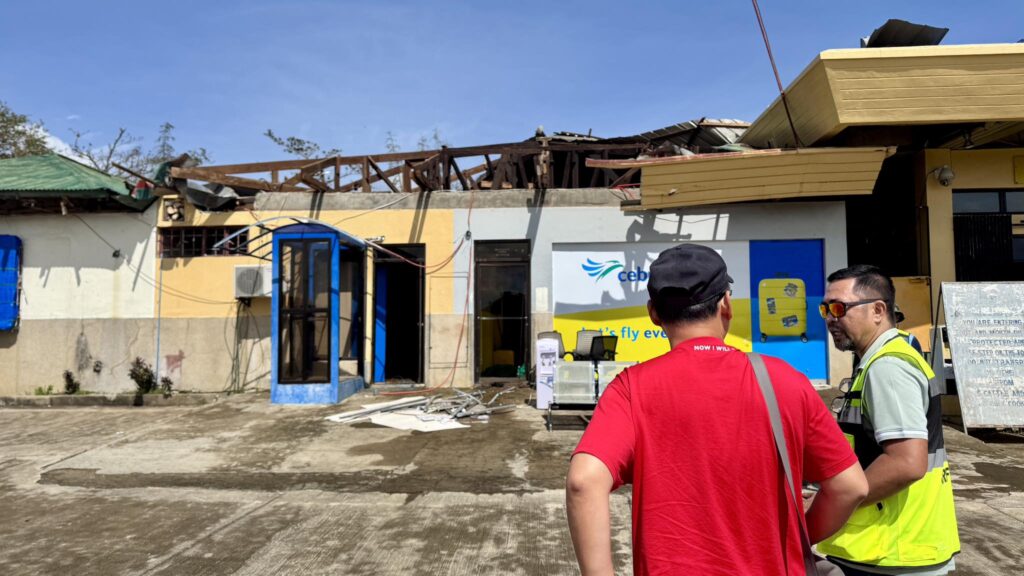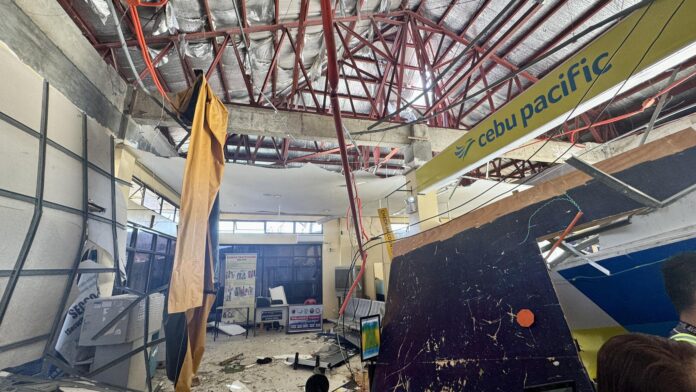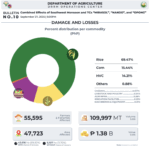The Department of Transportation (DOTr) has announced plans to expedite repair efforts at Masbate Airport after Typhoon Opong left significant structural damage, with estimated costs ranging from P10 to P15 million.
In line with President Ferdinand Marcos Jr.’s directive to prioritize passenger safety at airports and ports following the recent storm, Acting Transportation Secretary Giovanni Lopez conducted an on-site inspection of the airport on Saturday. Lopez emphasized the urgency of restoring the facility’s operations to ensure the safety and convenience of travelers.
Lopez instructed the Civil Aviation Authority of the Philippines (CAAP) to set up a temporary terminal for passengers as repair work continues on the main passenger terminal building. The CAAP has also been directed to expedite emergency procurement of necessary materials to support the ongoing repairs and maintain stock for future contingencies.

Airport personnel reported that Typhoon Opong was the most powerful storm to hit the area in recent years, causing flight cancellations and halting airport operations for several hours.
CAAP has confirmed that it plans to resume flight operations at Masbate Airport by Monday, following thorough cleaning of debris and the removal of any potential hazards in the terminal.
Secretary Lopez stressed the importance of making Philippine airports and ports more resilient to typhoons, given the country’s vulnerability to frequent storms. “Moving forward, our airports and ports must be typhoon-resilient in architecture and design. We have many typhoons hitting us every year, so all airports and ports must be structurally prepared,” he said.
In addition to the airport, Lopez also inspected the Masbate Port, which sustained only minor damage from Typhoon Opong. The Acting Transport Secretary directed port authorities to procure additional air-to-water converters to ensure a reliable supply of potable water during emergencies, emphasizing the importance of preparedness for both passengers and the local community.
“The President also told us that passengers affected by the typhoon should always have access to food and water at airports and ports. That is why it is crucial to have air-to-water converters, not only for passengers but also for the surrounding communities in times of need,” Lopez added.
Efforts to restore full functionality to both the airport and port are expected to continue throughout the coming weeks.






